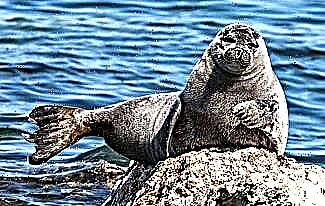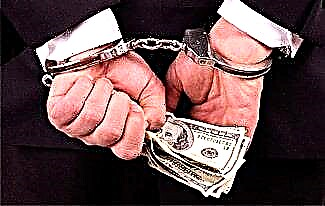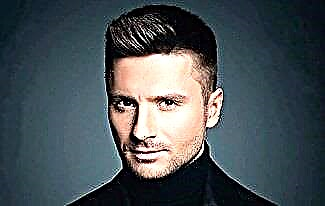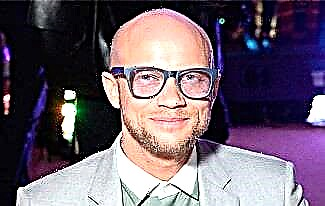Not even forty years have passed since the death of Yuri Vladimirovich Andropov, however, the modern leaping history disproportionately postpones the attempt to improve the political and economic system of the Soviet Union associated with the name of Andropov. Andropov himself had been preparing this attempt for many years, and began to implement it, becoming in 1982 the General Secretary of the Central Committee of the CPSU.

Alas, history and health gave him only a year and three months of work in this position, and even then Andropov spent most of this time in the hospital. Therefore, neither Andropov's contemporaries, nor we will ever know what the Soviet Union would have looked like if Yuri Vladimirovich had realized his ideas.
Andropov's biography is as contradictory as his politics. It contains a lot of incomprehensible facts and just gaps. The key feature of the life of the secretary general, most likely, is that he did not work for a day in real production. Leading posts in the Komsomol and the party provide apparatus experience, but they do not contribute in any way to establishing feedback with real life. Moreover, Andropov's career began in those years when the failure to comply with the orders of the authorities was unthinkable.
1. According to the documents, Yu. V. Andropov was born in 1914 in the Stavropol Territory. However, he received a birth certificate in the Cossack region only at the age of 18. Much says that in fact the future secretary general was born in Moscow. Some researchers consider Andropov's name, patronymic, and surname as pseudonyms, since his father was a Finn who served as an officer in the tsarist army, which in those years did not contribute to his party career.
2. Yuri Vladimirovich all his life suffered from a rather severe form of diabetes mellitus, due to which he experienced serious vision problems.
3. Andropov did not have a professional higher education - he graduated from the river technical school and the Higher Party School - an institution that provided higher education to nomenklatura workers.
4. In a little more than 10 years, Andropov rose from the post of secretary of the Komsomol organization of the technical school to the post of second secretary of the republican communist party.

5. The official biography attributes Andropov to the leadership of the partisan and underground struggle in Karelia, however, most likely, this is not true. Andropov has no military orders - only a fairly standard set of medals.
6. In the early 1950s, Andropov's career for some reason makes a sharp zigzag - a party apparatchik becomes a diplomat, and at once, at first, the head of the department of the Ministry of Foreign Affairs, and then the ambassador to Hungary.
7. For his participation in the suppression of the Hungarian uprising, Andropov received the Order of Lenin. But he was not much more influenced by the impressions he received that not even reforms, but small indulgences in domestic politics could result - the Hungarian events began with minor demands like the convocation of a party congress and the demolition of a monument to Stalin. They ended with the communists hanged in the square, and the faces of the executed were burned with acid.

8. Specially for Andropov, a department was created in the Central Committee of the CPSU to manage cooperation with foreign communist parties. Yuri Vladimirovich headed it for 10 years.
9. For the next 15 years, Andropov headed the KGB of the USSR.
10. Yu. Andropov became a member of the Politburo of the Central Committee in 1973 at the age of 59.
11. In May 1982, Andropov was elected Secretary, and in November - General Secretary of the CPSU Central Committee. Formally, the Secretary General became the head of the Soviet state on June 16, 1983, when the procedure for his election as Chairman of the Presidium of the Supreme Soviet took place.
12. Already in July 1983, Andropov's health deteriorated sharply. On February 9 of the following year, he died of kidney failure.

13. Despite the tense foreign policy situation, American Vice President George W. Bush and British Prime Minister Margaret Thatcher flew to the funeral of Y. Andropov.
14. In January 1984, Time magazine named two politicians at once “Person of the Year”: American President Reagan and the dying Soviet Secretary General Andropov.

15. As head of the KGB, Andropov sharply intensified the fight against the dissident movement, creating for this a special structure (Section 5) within the framework of his service. The dissidents were tried, exiled, expelled from the USSR, and forcibly treated in psychiatric hospitals. By the early 1980s, the dissident movement had been defeated.
16. The Fifth Section included not only fighters against dissidents, but also anti-terror groups created by order of the chairman of the committee.
17. At the same time, Andropov strove to cleanse the ranks of the party nomenklatura. For the time being, incriminating materials were simply collected in the KGB, and after the election of Yuri Vladimirovich as general secretary for the country, active processes began to eradicate corruption and bribery. Some of them ended in death sentences. The rank of the guilty did not matter - ministers, representatives of the party elite and even relatives and close friends of Andropov's predecessor, Leonid Brezhnev, sat in the dock.
18. Raids on visitors to cinemas, restaurants, hairdressers, baths, etc. during working hours now seem like a curiosity and were negatively perceived by society. However, the logic of the authorities' actions was quite transparent: order should be established not only above, but also below.
19. Conversations about a certain liberalism of Andropov, his passion for Western music and literature were only skillfully spread rumors. Andropov could seem an intellectual only against the background of other members of the Politburo. And the writer Julian Semyonov, who had an almost friendly relationship with Andropov, had a hand in spreading rumors.
20. It may well be a chain of coincidences, but a series of sudden deaths of possible successors of L. Brezhnev (Marshal A.A. Grechko, head of government A. N. Kosygin, member of the Politburo F. D. Kulakov, head of the Belarusian Communist Party P. M. Masherov ) and the almost indicative persecution of the chairman of the Leningrad City Committee G. Romanov and member of the Politburo A. Shelepin look very suspicious. With the exception of Grechko, all of these persons had better prospects for occupying the highest post in the party and the country than Andropov.
21. Another suspicious fact. In the meeting of the Politburo, at which Andropov was elected general secretary, the leader of the Communist Party of Ukraine V. Shcherbitsky, who was in the United States, was to participate. Shcherbitsky's authority was very great, but he could not take part in the meeting - the American authorities delayed the departure of the plane with the Soviet delegation.
22. Andropov chose a not very successful line of conduct for the Soviet Union in the case of the South Korean Boeing shot down over the Far East. For 9 days after the liner was shot down by a Soviet pilot, the Soviet leadership was silent, getting off with an indistinct TASS statement. And only when the anti-Soviet hysteria was already raging in the world with might and main, attempts at explanations began that no one wanted to hear anymore - everyone knew for sure that the Russians had killed 269 innocent passengers.
23. Changes in the regulation of the economy, carried out during the short time of Andropov's rule, opened the way for Gorbachev's perestroika. Even then, labor collectives and enterprise managers received more rights, experiments began in some ministries.
24. Yuri Andropov tried to conduct a balanced foreign policy. But the time was too harsh for any normalization of relations between the USSR and the West. President Reagan declared the Soviet Union an "Evil Empire", deployed missiles in Europe and launched the Star Wars program. The Soviet secretary general was also hampered by his health - confined to the hospital, he could not establish personal contacts with foreign leaders.

25. Andropov is accused of a particularly tough position taken in relation to the introduction of troops into Afghanistan. However, he was only one of three speakers at the meeting of the Politburo, which made a fateful decision.









